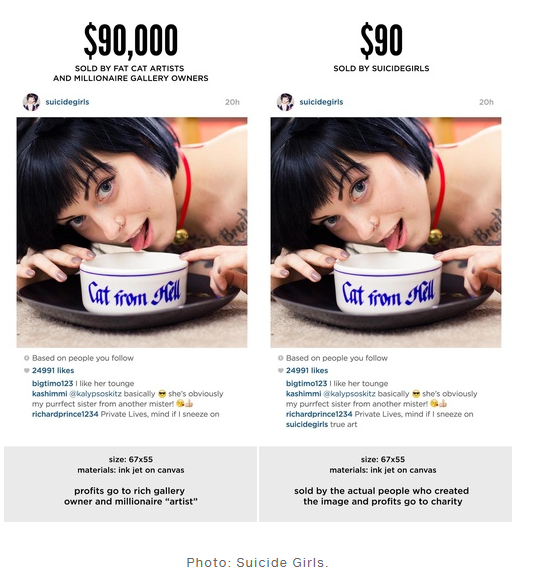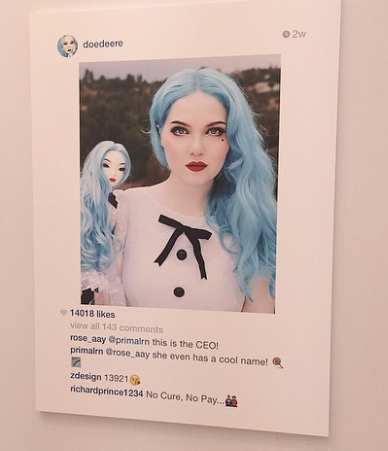With much anticipation, the Second Circuit issued its opinion last week in the Google Books case (Authors Guild et al. v. Google, Inc.), brought by authors Jim Bouton (of Ball Four fame) and others against Google for the latter’s program of scanning millions of library books, whether or not those books are in the public domain. My overwhelming reaction to the opinion, however, in the realm of visual art, is what a lost opportunity the Prince v. Cariou decision was two years ago, and some optimism that the most recent decision will start to provide useful guidance for practitioners that has been harder to give with confidence since Prince. After two years of the preeminence of the first fair use factor threatening to dwarf everything with a “transformativeness” test that essentially any use could meet, Google Books (even while finding a fair use) restores some balance to that analysis.
Google Books, Fair Use, and Visual Art—Second Circuit Writes Decision That Would Have Helped Two Years Ago
Topics: Richard Prince, Campbell v. Acuff-Rose Music, Hildebrand Gurlitt, 510 U.S. 569, Teenage Mutant Ninja Turtle, Prince v. Cariou, Second Circuit, Canal Zone, Patrick Cariou, Toward a Fair Use Standard, Michelangelo, Suicide Girls, Inc., Google Books, The Legal Guide for Museum Professionals, Pierre Laval, Jim Bouton, Copyright, transformativeness, Fair Use, Nazi-Looted Art: Risks and Best Practices for Muse
Richard Prince, Social Media and the Public Domain: Reports of Copyright’s Demise are Premature
Reactions to the Richard Prince Instagram story continue to filter in, and highlight the perpetual confusion between what is publicly available and what is in the public domain. They are not the same thing, with important legal consequences.
Topics: Richard Prince, Missy, Copyright Act, Prince v. Cariou, Canal Zone, Patrick Cariou, Suicide Girls, vulture.com, Yes Rasta, 17 U.S.C. § 107, Jerry Saltz, Instagram, Copyright, transformativeness, Fair Use, ArtNet, New York Magazine, § 107
Fair Use Fool me Twice, Shame on Me—Richard Prince Goes Trolling on Instagram But May Have a More Pedestrian Problem
Few art law cases have received as much attention as that of Richard Prince and his dispute with Patrick Cariou over the latter’s Yes, Rasta photographs that Prince altered, defaced, and otherwise rearranged for his Canal Zone series. Prince has now garnered renewed attention for his appropriation of Instagram images in a set of works he has been selling at a Gagosian Gallery show called “New Portraits" (and in various other venues over the last few months). He escaped liability for infringement of Cariou’s pictures (though the case settled after remand; several infringement claims were still in play when the parties settled). Can he do so again? If this recent effort is not infringement, it certainly begs the question of whether the fair use exception has swallowed the rule. Lastly, Instagram itself may have prohibited the entire exercise in its terms of use, a possible avenue to short-circuit the entire copyright exercise.
Topics: Richard Prince, Copyright Act, DoeDeere, 2LiveCrew, Prince v. Cariou, Roy Orbison, Canal Zone, Patrick Cariou, Internet, Yes Rasta, 17 U.S.C. § 107, Instagram, Copyright, Gagosian Gallery, transformativeness, Fair Use, § 107
Can Copyright Aid Kate Upton, Jennifer Lawrence, and Other Victims of Celebrity Photo Hack?
As anyone with a computer now knows, the story broke last week of a supposed cache of hundreds of intimate photographs of numerous celebrities, including Kate Upton and Jennifer Lawrence, and Detroit Tigers pitcher Justin Verlander. Over the course of the week, rumors circulated about who, exactly, had them, and whether or where they would be leaked online. The story also raised important questions about privacy, security, and default cloud storage of which many people were simply unaware.
Topics: The Showroom, Richard Prince, U.S. Copyright Office, reddit, rights of publicity, Second Circuit, No Delete, Canal Zone, Jennifer Lawrence, Patrick Cariou, Florida, Detroit Tigers, Yes Rasta, Saint Petersburg, Jeff Hamilton, Kate Upton, Cory Allen Contemporary Art, selfie, photo hack, Justin Verlander, XVALA, Copyright, First Amendment, Fair Use, Warehouse Arts District, Art Law Report
Free Speech, Fair Use, and Meaning—Recapping An Evening of Copyright and the Visual Arts at the Sotheby’s Institute
Last night was a fascinating evening at the Sotheby’s Institute in New York, where Judith Prowda was celebrating the launch of her new book Visual Arts and the Law (Lund Humphries 2013). The book, not at all incidentally, is a must-have.
Topics: free speech, Richard Prince, Amy Adler, Campbell v. Acuff-Rose Music, Judith Prowda, Canal Zone, Patrick Cariou, Lund Humphries, Boies Schiller, American Society of Media Photographers, Yes Rasta, Kirkland & Ellis, NYU Law School, Events, Picture Archive Council of America, Shepard Fairey, Dale Cendali, Copyright, Hope, Visual Arts and the Law, transformative, First Amendment, Associated Press, Sotheby’s Institute, Fair Use
Cariou Petitions Supreme Court to Review Richard Prince Fair Use Decision
Patrick Cariou, after winning his copyright claim against Richard Prince in the District Court in 2011, suffered a stinging reversal earlier this year when the Second Circuit found in Prince’s favor as to his use of Cariou’s Yes, Rasta series in the Prince Canal Zone collages. The Second Circuit decision has been widely derided by copyright analysts, who apart from the relative merits of Cariou vs. Prince found the decision unclear as guidance to future artists and copyright holders. For the Art Law Report’s coverage of the case, click here.
Topics: Cariou v. Prince, Richard Prince, Roy Orbison, Canal Zone, Patrick Cariou, Campbell v. Acuff Rose Music Inc., Yes Rasta
No Infringement in Cariou v. Prince—Second Circuit Plays Art Critic and Finds Fair Use
Two years after a U.S. District Court decision that sent shock waves through the contemporary art world, the Second Circuit Court of Appeals has reversed that earlier finding that Richard Prince infringed the copyright of Patrick Cariou. Instead, the appeals court ruled that all but five Prince works at issue were fair use under the Copyright Act, remanding the case to re-analyze those five works. It is as dramatic a win for appropriation art as the lower court decision was a chill on that art.
Topics: Andy Warhol Foundation, Richard Prince, Copyright Act, Graduation, Second Circuit, Canal Zone, Patrick Cariou, Charlie Company, appropriation art, Meditation, Yes Rasta, Clifford Wallace, Warhol, Cézanne, Copyright, Canal Zone (2008), de Kooning, Picasso, Fair Use, Google, Canal Zone (2007)
Cariou Files Appeals Brief—Is this Case Less Transformative Than It Seemed?
Patrick Cariou has filed his much-anticipated responsive brief in the Richard Prince/Gagosian Gallery copyright infringement appeal. Cariou’s brief makes its stand on the question of transformative use. The degree to which a derivative work is transformative of a protected work is, of course, a central element of a fair use analysis about which Prince will have to persuade the Second Circuit to overturn the judgment below. In so doing, however, one starts to wonder if this case will be of less precedential value—less transformative, if you will—than it has seemed since the judgment last year.
Topics: Richard Prince, Infringement, Second Circuit, Canal Zone, Patrick Cariou, Yes Rasta, Copyright, Gagosian Gallery
Prince Copyright Appeal: Warhol Foundation Makes the Case to Reverse Infringement Finding
After several months of inactivity, the first brief is available in the Richard Prince appeal of the judgment against him and the Gagosian Gallery earlier this year for infringing on the works of Patrick Cariou. Prince’s arguments of “fair use” of Cariou’s photographs failed to persuade the District Court and the infringing works were ordered impounded, a harsh and unusual remedy.
Topics: Richard Prince, Canal Zone, Patrick Cariou, Dada, Association of Art Museum Directors, Copyright, Gagosian Gallery, Fair Use, Andy Warhol Foundation for the Visual Arts
Richard Prince Copyright Appeal Survives Cariou Motion to Dismiss
The Richard Prince copyright case is in the news again, though probably more than it deserves. Patrick Cariou, whose photographs Prince was found this spring to have infringed, moved to dismiss Prince’s appeal arguing that the injunction concerning the impoundment and destruction of the existing works (Prince was ordered to deliver them for destruction) was mooted by a stipulation between the parties. Thus, Cariou argued, there was nothing at the moment to appeal (i.e. Prince appealed to soon).
Topics: Richard Prince, Canal Zone, Patrick Cariou, Copyright, Gagosian Gallery, Fair Use




